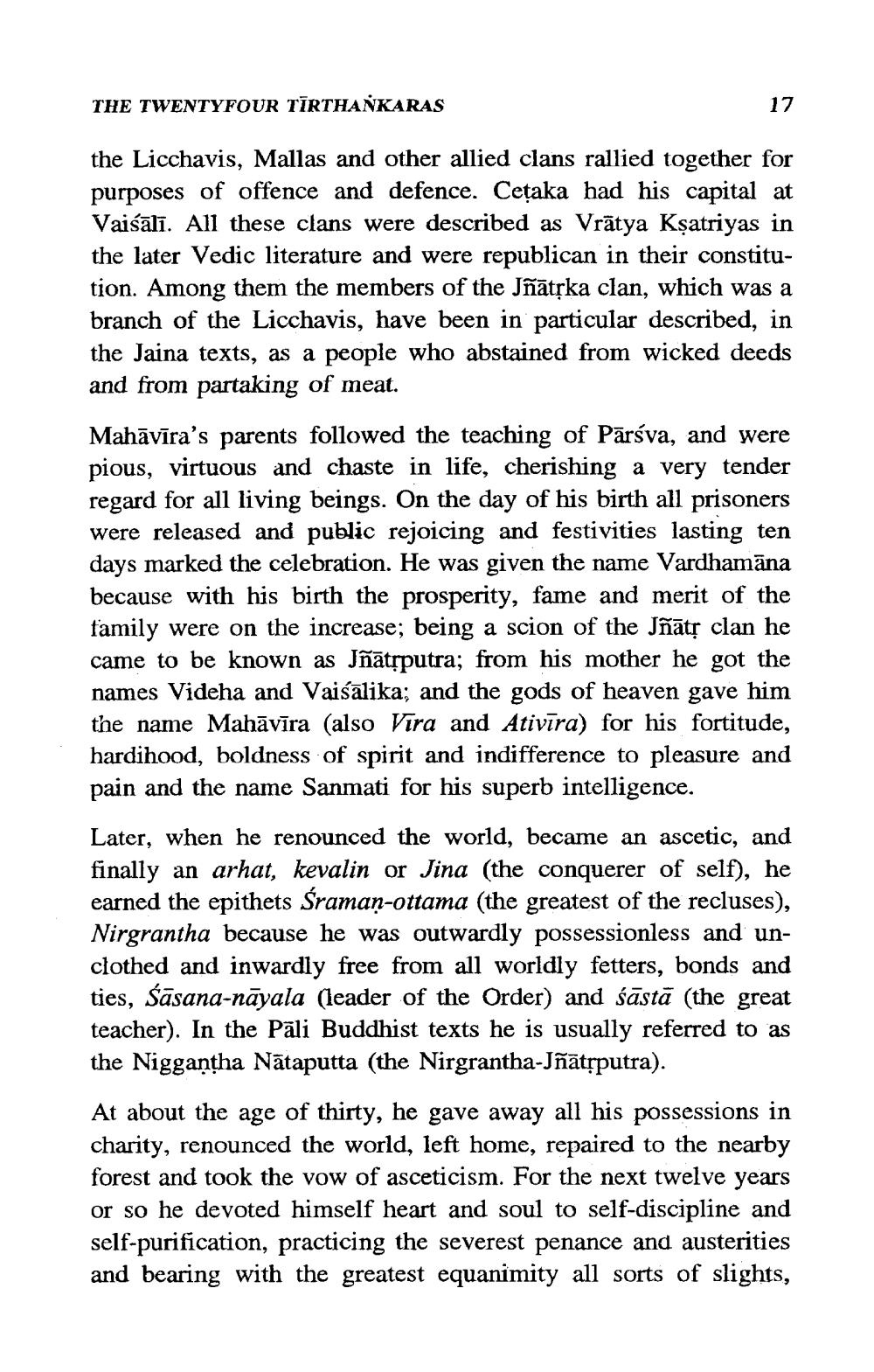________________
THE TWENTYFOUR TIRTHANKARAS
the Licchavis, Mallas and other allied clans rallied together for purposes of offence and defence. Cetaka had his capital at Vaisālī. All these clans were described as Vrātya Kṣatriyas in the later Vedic literature and were republican in their constitution. Among them the members of the Jñātṛka clan, which was a branch of the Licchavis, have been in particular described, in the Jaina texts, as a people who abstained from wicked deeds and from partaking of meat.
17
Mahāvīra's parents followed the teaching of Parsva, and were pious, virtuous and chaste in life, cherishing a very tender regard for all living beings. On the day of his birth all prisoners were released and public rejoicing and festivities lasting ten days marked the celebration. He was given the name Vardhamāna because with his birth the prosperity, fame and merit of the family were on the increase; being a scion of the Jñatṛ clan he came to be known as Jñātṛputra; from his mother he got the names Videha and Vaisalika; and the gods of heaven gave him the name Mahāvīra (also Vira and Ativīra) for his fortitude, hardihood, boldness of spirit and indifference to pleasure and pain and the name Sanmati for his superb intelligence.
Later, when he renounced the world, became an ascetic, and finally an arhat, kevalin or Jina (the conquerer of self), he earned the epithets Śraman-ottama (the greatest of the recluses), Nirgrantha because he was outwardly possessionless and unclothed and inwardly free from all worldly fetters, bonds and ties, Śāsana-nāyala (leader of the Order) and śāstā (the great teacher). In the Pali Buddhist texts he is usually referred to as the Niggantha Nataputta (the Nirgrantha-Jñātṛputra).
At about the age of thirty, he gave away all his possessions in charity, renounced the world, left home, repaired to the nearby forest and took the vow of asceticism. For the next twelve years or so he devoted himself heart and soul to self-discipline and self-purification, practicing the severest penance and austerities and bearing with the greatest equanimity all sorts of slights,




